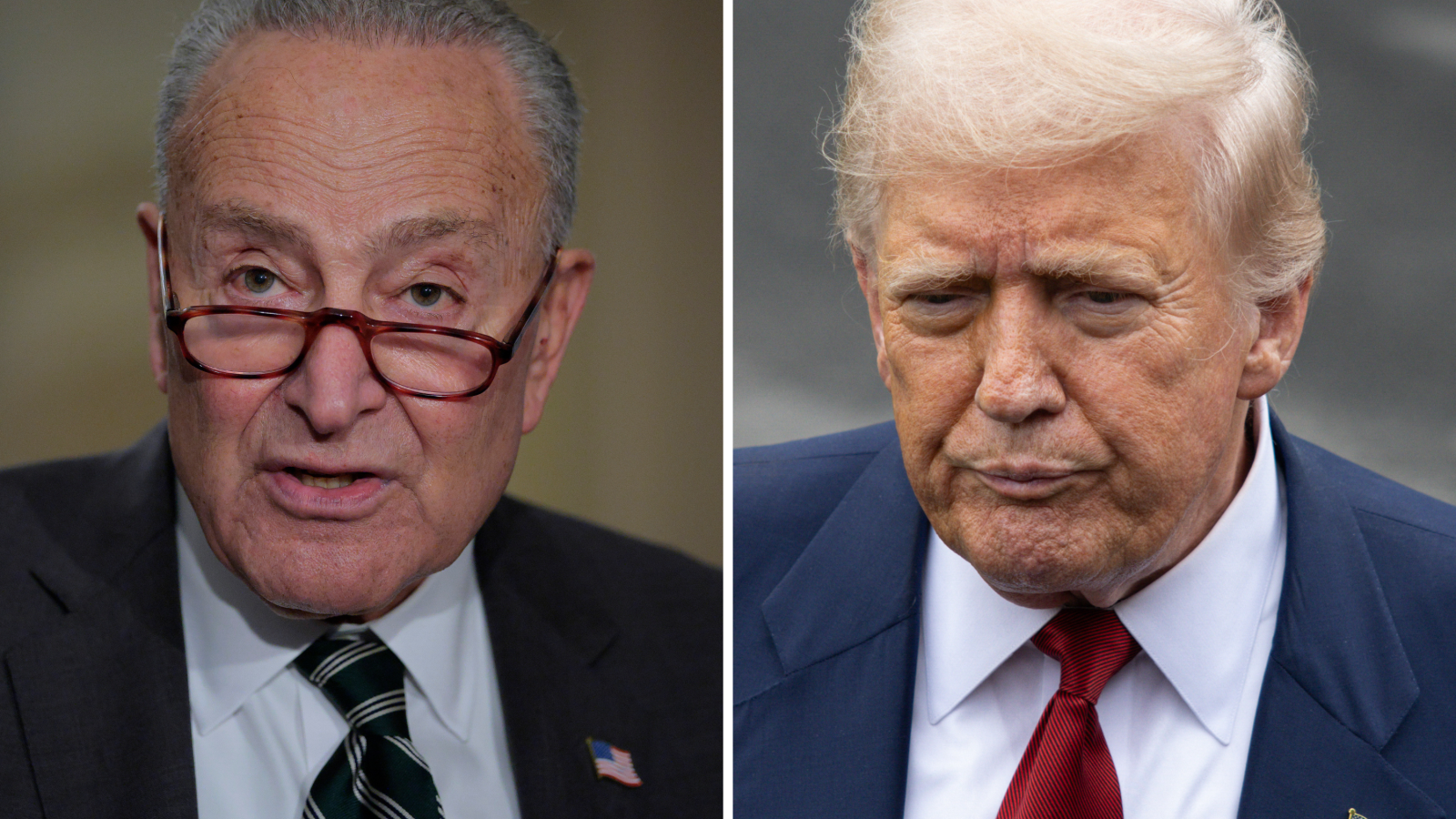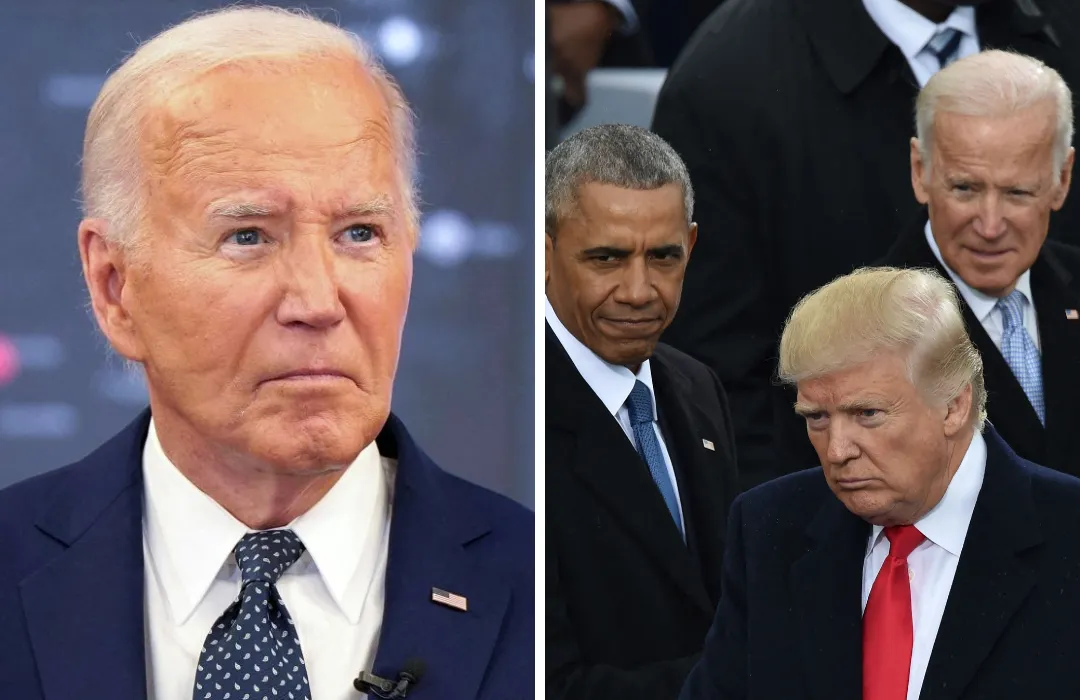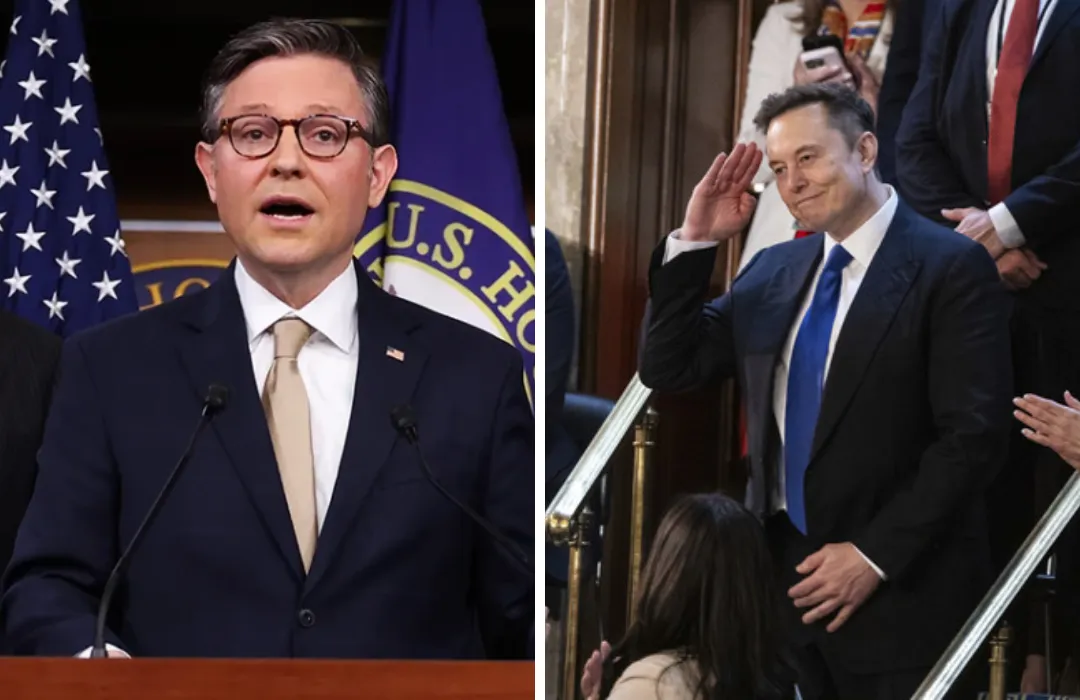President Donald Trump unleashed a fiery rebuke against Senate Majority Leader Chuck Schumer on Saturday, telling the New York Democrat to “go to hell” after last-ditch negotiations to confirm a slate of nominees collapsed.
The showdown underscored both the deep partisan divisions in Washington and the growing urgency as the Senate departed for its August recess without resolving the dispute.
Trump’s sharp words came in a social media post on Truth Social, in which he accused Schumer of “political extortion” and rejected demands Democrats had made during the talks. Hours later, the Senate adjourned, leaving dozens of Trump’s nominees stranded in procedural limbo.
For weeks, Senate GOP Leader John Thune, Schumer, and White House officials had been locked in tense negotiations aimed at securing agreement on moving nominees through the chamber.
Trump had pressed Republicans to push confirmations forward even if it meant canceling the August recess, but Democrats employed procedural tactics to slow the process.
According to sources familiar with the talks, Schumer demanded the release of certain federal funds and assurances that the White House would not seek another round of budget rescissions before allowing quick consideration of the nominees.
These demands reportedly included unfreezing money for programs such as the National Institutes of Health and foreign aid.
Trump balked, calling the proposals “egregious and unprecedented.” In his post, he blasted Schumer’s conditions and accused Democrats of holding the government hostage.

“Senator Cryin’ Chuck Schumer is demanding over One Billion Dollars in order to approve a small number of our highly qualified nominees, who should right now be helping to run our Country.
This demand is egregious and unprecedented, and would be embarrassing to the Republican Party if it were accepted. It is political extortion, by any other name,” Trump wrote.
In language typical of his combative political style, Trump went further, telling his allies and the public that Schumer should be shunned outright.
“Tell Schumer, who is under tremendous political pressure from within his own party, the Radical Left Lunatics, to GO TO HELL!” he wrote.
“Do not accept the offer, go home and explain to your constituents what bad people the Democrats are, and what a great job the Republicans are doing, and have done, for our Country. Have a great RECESS and, MAKE AMERICA GREAT AGAIN!!!”
The post made clear that the president had no intention of conceding to Democratic demands, setting the stage for the Senate to leave Washington without resolving the matter.
On Saturday evening, as negotiations reached their breaking point, Senate GOP Leader John Thune went to the Senate floor to request unanimous consent to approve a select group of nominations before adjourning.
Democrats objected, effectively blocking the effort and ensuring that the chamber would leave town with unfinished business.
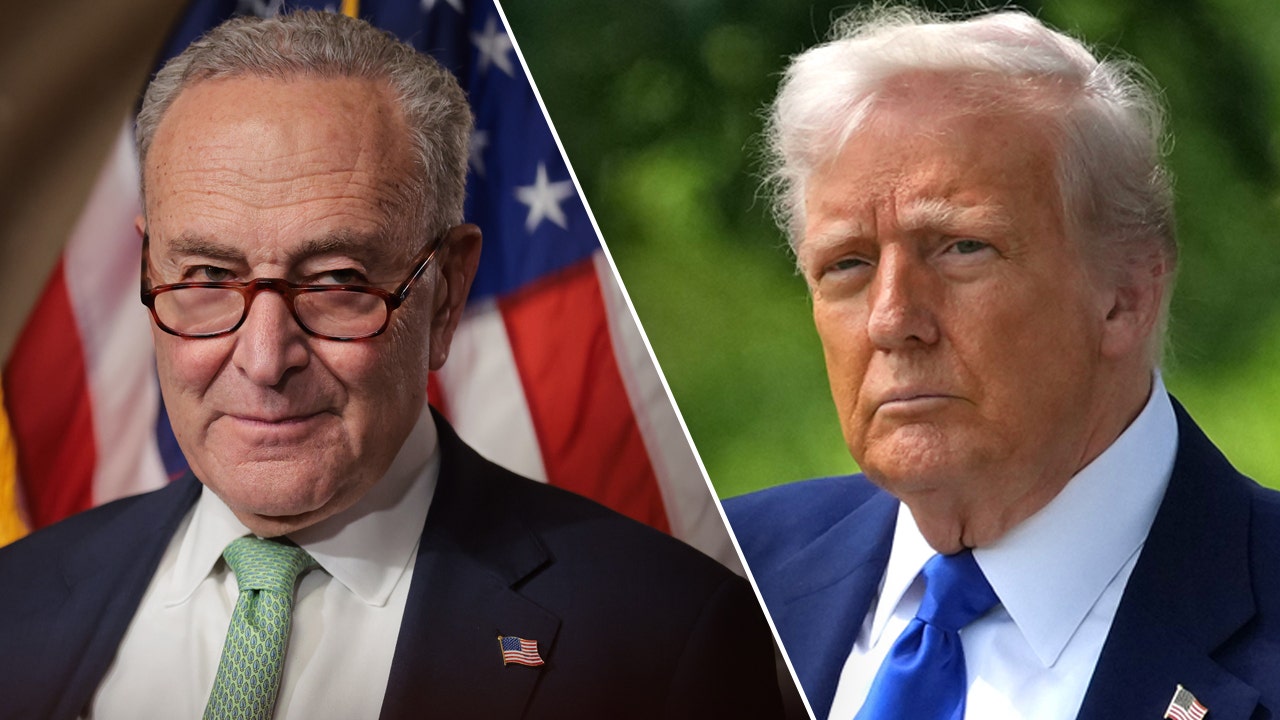
Democrats, though in the minority, wielded procedural powers that allowed them to delay the confirmation process. By forcing Republicans to navigate time-consuming hurdles before votes could take place, they were able to frustrate the White House’s timeline.
At a press conference, Schumer defended his party’s stance. “We are serious about negotiating a reasonable path to bipartisan confirmation of nominees,” he said. But he insisted that Trump had refused to meet the Democrats’ terms.
The central sticking point was Schumer’s demand for the unfreezing of federal funds, including those allocated for health and foreign aid programs, and a pledge from Trump not to pursue another round of spending cuts.
The demands came after a $9 billion rescissions package had been enacted earlier in the summer, a move Democrats viewed as an attack on key priorities.
Republicans saw the demands as unrelated to the immediate question of confirmations. To them, Schumer was leveraging unrelated policy goals to gain concessions, something Trump flatly rejected.
The collapse of talks highlighted not only the divide between the parties but also the difficulty of governing in an environment of entrenched mistrust. For Trump, giving in would have undercut his image as a fighter against what he calls “radical left” obstruction.
For Schumer, backing down risked angering Democrats who wanted to defend key funding priorities.
The clash comes at a politically precarious time for Democrats. With midterm elections just 15 months away, the party faces historically low approval ratings and has struggled to keep pace with Republican fundraising efforts.

According to recent polls, Democratic approval has sagged, raising concerns about their ability to defend congressional majorities. Fundraising totals underscore the challenge: Trump’s campaign and allied political committees have already surpassed his ambitious $1.4 billion fundraising goal more than a year ahead of schedule.
The achievement, announced Friday, sets the stage for what insiders predict will be record-breaking campaign spending in the midterms. Trump’s team revealed that the funds were accumulated through a combination of cash on hand and pledged donations, routed through the Republican National Committee and his super PAC, Make America Great Again, Inc.
The sheer scale of the operation reflects Trump’s strategy to use his fundraising machine not only for his own political survival but also to protect Republican majorities in both chambers of Congress.
The $1.4 billion target was first unveiled in May, when Trump’s team announced an initial haul of $600 million — a figure already seen as historic. Within months, the goal was met, underscoring the depth of Trump’s donor base and his dominance within the GOP.
For Trump, the ability to marshal such resources represents both a political weapon and a shield. By promising to defend vulnerable Republicans in Congress, he ensures loyalty from within his party. At the same time, the fundraising success gives him leverage to portray Democrats as weak and divided.
The timing of the fundraising milestone added weight to the weekend’s standoff. With Democrats struggling to raise comparable sums, Trump’s refusal to yield to Schumer’s demands allowed him to project strength at a moment when the balance of power in Congress is increasingly contested.
The deadlock over nominees may further complicate Democrats’ prospects heading into the midterms. By slow-walking confirmations, they are attempting to extract policy concessions. But by doing so, they risk being portrayed as obstructing government operations.
Republicans are likely to argue that Democrats are blocking qualified individuals from serving in important posts, potentially weakening the administration’s ability to govern effectively. Trump himself has already framed the issue as one of Democrats undermining the functioning of government for political gain.
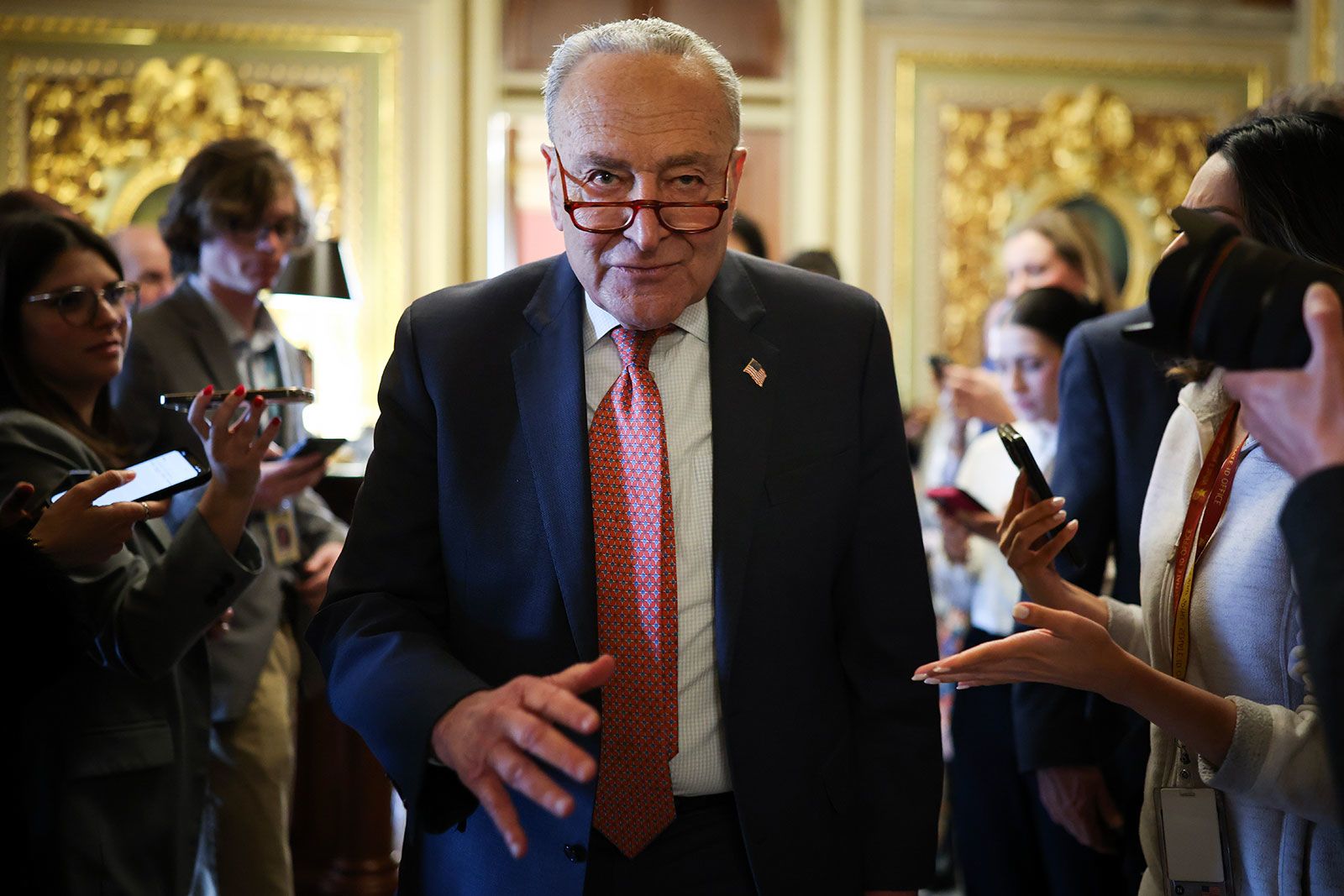
The strategy carries risks for Democrats, who must balance internal demands from progressive constituencies with the need to present themselves as constructive participants in governance. The optics of rejecting nominees at a time of global uncertainty and domestic challenges could prove politically damaging.
For Trump, the confrontation with Schumer serves multiple purposes. It energizes his base by reinforcing his combative stance against Democratic leaders. It underscores his claim that Democrats are beholden to “radical left” interests. And it allows him to pivot attention toward Republican unity and fundraising success.
By telling Schumer to “go to hell,” Trump ensured the dispute would dominate headlines, drawing a sharp contrast between his refusal to compromise and Schumer’s demands. The blunt language also echoed the style that has long endeared him to his supporters, who value his willingness to speak without restraint.
With the Senate now adjourned for summer recess, the stalemate will linger into the fall. The fate of Trump’s nominees remains uncertain, and the political ramifications of the confrontation are only beginning to unfold.
Republicans will likely return in September with renewed efforts to move confirmations forward, while Democrats may continue to insist on concessions. Legal and procedural maneuvers will determine whether the nominees ultimately reach the floor for votes.
In the meantime, the broader narrative is clear: Trump is leveraging both his political clout and fundraising dominance to shape the political battlefield heading into the midterms.
Democrats, weakened by sagging approval ratings and financial disadvantages, face the dual challenge of defending their policy priorities while avoiding the perception of obstructionism.
The dramatic exchange between Trump and Schumer illustrates the entrenched partisanship that defines Washington politics. With the Senate leaving town without confirming nominees, the dispute is far from resolved.
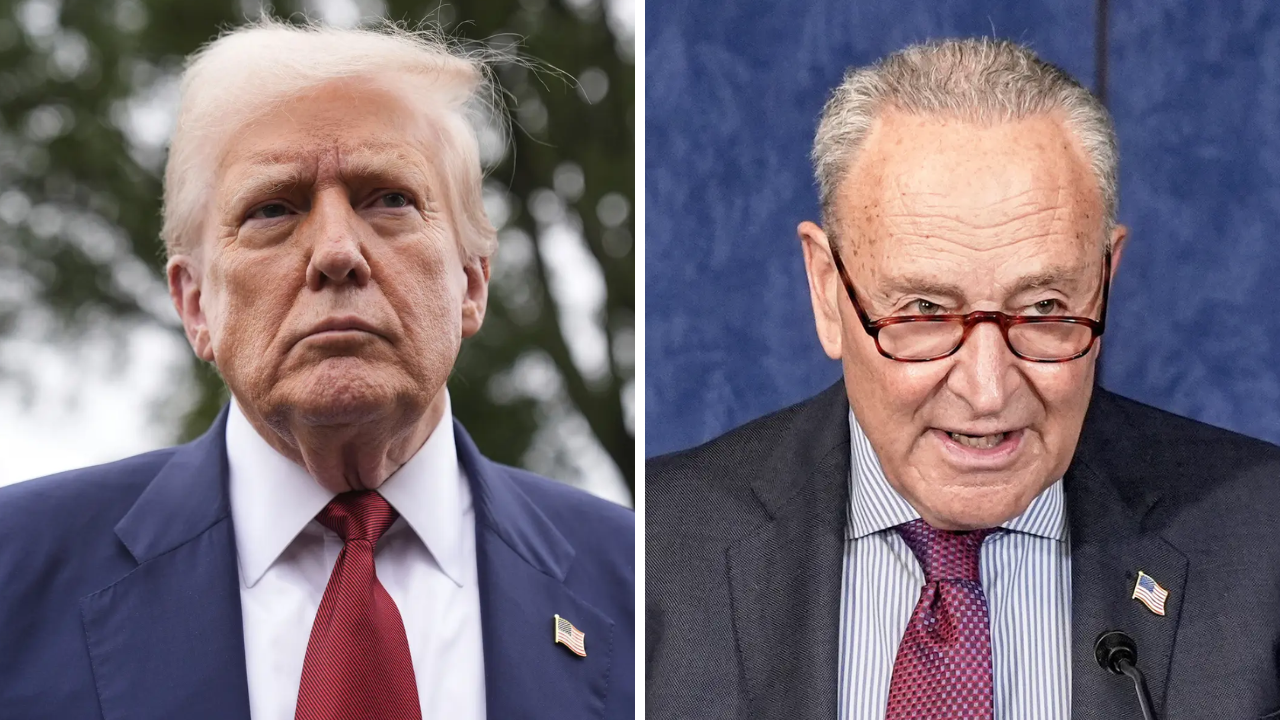
But the clash has already crystallized the stakes: Republicans aim to project strength and unity under Trump’s leadership, while Democrats struggle to balance resistance with governance.
As the midterms approach, the fallout from this weekend’s standoff could echo well beyond the nominees themselves. It could shape public perceptions of which party is capable of governing effectively, determine the balance of power in Congress, and influence the trajectory of Trump’s presidency.
For now, Trump’s message to his supporters is clear. In his own words, Schumer can “go to hell” — and Republicans, he insists, will carry on with the work of making America great again.
